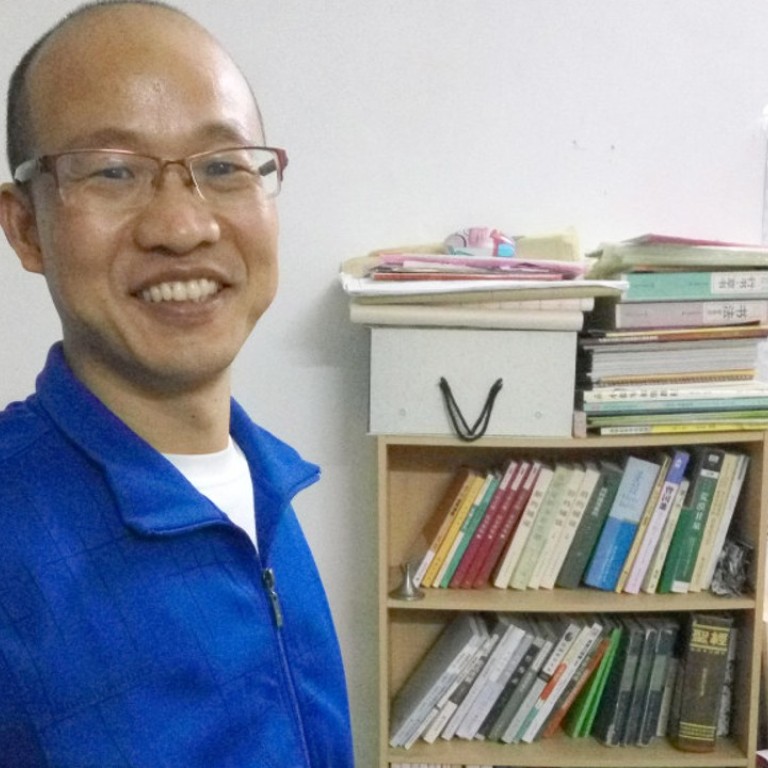
Activist ‘still recovering from torture’ inflicted in Chinese prison
Ex-teacher’s allegations follow similar claims from lawyers, who are calling for an official investigation
Six months after being released from two-and-a-half years behind bars, former teacher and rights activist Wang Qingying says he is still recovering from the torture inflicted on him while he was custody.
And in the past few months, hundreds of mainland lawyers have signed an online petition calling on Beijing to investigate torture claims made by more than a dozen recently released rights lawyers and activists, who were detained in a massive crackdown in 2015.
Critics and rights groups said that despite China ratifying the UN Convention against Torture in 1988, physical abuse was still common against people in police custody and in detention centres. They called on Beijing to properly investigate the problem.
The ministries of public security and justice, which manage detention centres and prisons, did not reply to faxed questions about torture allegations.
Wang, who was arrested in 2014 along with former rights lawyer Tang Jingling and activist Yuan Chaoyang in Guangzhou, recalled how he was abused by investigators from the beginning.
“On the first day, Guangzhou security agents forced a water pipe into my rear end after a house search for evidence, with both male and female policemen mocking me on the scene.
“I was often given only mouthfuls of water a day … I was tied to a chair [and] had to relieve myself in one pair of pants for eight days in a row,” Wang said at his home in Guangzhou, adding that he had been repeatedly beaten. He still cannot sit properly and makes frequent trips to the toilet.
He said he was afflicted with paranoia by the time he was released in November.
Meanwhile, the Hong Kong-based China Human Rights Lawyers Concern Group said at least 15 people detained in the 2015 crackdown had reported in person or via family members that they were tortured in jail. The prisoners, some of whom had been released on probation, said they were subjected to abuse that included beatings, the forced feeding of medication, sleep deprivation and prolonged periods in restraining devices.
Fan Lili – the wife of Christian activist Gou Hongguo, who was sentenced by a Tianjin court to a three-year jail term with a three-year suspension last year – said Guo was force-fed medication from the first day of his arrest in Beijing on July 10, 2015.
The medication was meant to “treat high blood pressure and correct digestive function”, according to Fan. “Everyday began with four pills in the morning – one red and three white– and two white ones in the evening. The quantity may have been adjusted from time to time,” Fan said.
Authorities have disputed some torture allegations. In May, the police department in Changsha, Hunan province, released a video of a detained former rights lawyer, Jiang Tianyong, denying claims that he was being tortured in custody.
However, the police rejected eight requests by his lawyers to visit him.
Dr Sophie Richardson, China Director of Human Rights Watch, said torture allegations should be properly investigated and prosecuted.
“Although the Chinese government has since 2009 adopted measures to curb torture by police, those have not gone far enough to combat abuses,” Richardson said.
She also urged Chinese authorities to allow the presence of suspects’ lawyers during interrogations and to hold police accountable for abuse.
William Nee, China Researcher at Amnesty International, said the persistence of torture in China was entrenched.
“This should also be seen in the wider context of the government taking other horrific measures to get people to confess: putting lawyers and activists in [home] incommunicado detention that the UN has told China to get rid of, putting extreme pressure on family members of the detained to confess or simply harassing them, and subjecting the detainees to forced televised confessions,” Nee said.
Dr Teng Biao, a legal scholar living in exile, said “there’s no sign of easing” of the practice of torture on the mainland.
“Torture in China is institutional, rather than an individual practice of certain law enforcement officers,” Teng said.

